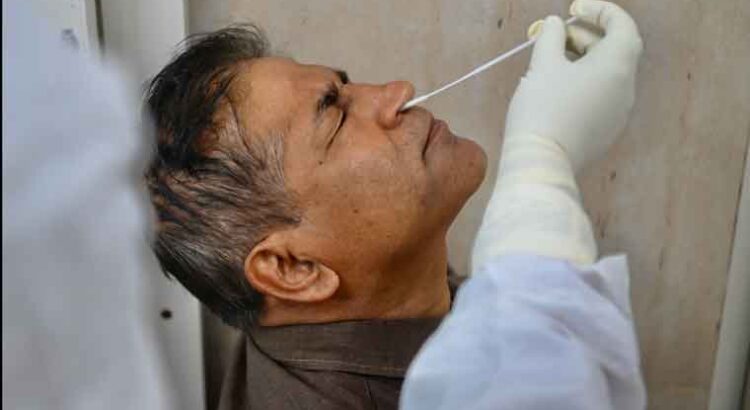Just when we thought Covid-19 was behind us, it raises its ugly head once again, and that too just a few days before we step into the new year. Does this mean the coronavirus will stain 2024 with its ominous presence?
"Possible," say experts, adding that the new JN.1 strain of the virus which is currently classified as a ‘variant of interest’ by the World Health Organisation (WHO), has high potential for evading the human body’s immune system. But there is good news too—all those who are vaccinated need not worry as scientists believe that current vaccines should work against this just as they did against the Omicron subvariant of SARS-CoV-2, the virus which causes Covid-19. Time to dust off the masks all over again? Yes.
The first recorded instance of the JN.1 variant in India was found on December 8 in a 78-year-old woman in Kerala and more cases have been detected since—19 in Goa, one in Maharashtra. Cases of this variant have been on the rise across several countries. Globally, cases of JN.1 have been reported from the US, some European countries, Singapore and China. “Due to its rapidly increasing spread, WHO is classifying the variant JN.1 as a separate variant of interest (VOI) from the parent lineage BA.2.86,” said a statement from the WHO.
Even though as of now, the intergovernmental body has not flagged off a public health risk as a result of the JN.1, it said in a statement that with the onset of winter in the northern hemisphere, JN.1 could increase the burden of respiratory infections in many countries. It also said that the current vaccines continue to protect against severe disease and death due to JN.1.
"Each year in winter, we see a rise in the number of patients coming to us with complaints of cold and cough and various respiratory illnesses. This year, the numbers are far more. Now that the WHO has highlighted that a particular variant is doing the rounds, we need to be more careful. And that can happen only through prevention. It is important that we go back to wearing masks even if we are vaccinated. Because, although the vaccines will protect us from serious hospitalisation and even death, it might not keep us immune from catching the virus in the first place," says Dr Ramesh Shah, a Mumbai-based physician.
NITI Aayog member (Health) Dr V.K. Paul reportedly said on Wednesday that as many as 21 cases of Covid-19 sub-variant JN.1 have been detected across the country till now and about 91 to 92 per cent of those infected are opting for home-based treatment. As per data updated by the Union Health Ministry, India recorded 614 new coronavirus infections on Tuesday, the highest since May 21 and active cases increased to 2,311.
Union Health Secretary Sudhansh Pant also said that the variant was currently under intense scientific scrutiny but not a cause of immediate concern. "No increase in hospitalisation rates has been witnessed due to Covid-19. The cases that have been hospitalised were due to other medical conditions and Covid was an incidental finding," he reportedly said.
"All we can say at this point is the need to be more careful and use prevention. This variant, the JN.1, is constantly changing in transmissibility and virulence, hence the spread. However, the current vaccines we have all taken, provide a good fight against this variant. But we still don’t have all the information we need about it and continuous monitoring is going on. We have to wait and watch and be very careful about maintaining social distance and covering our mouths with a mask at all times," said Dr Yadav, a leading scientist at the National Institute of Virology.
A variant is designated as VOI by WHO if it shows a growth advantage over other circulating variants — meaning its proportion increases along with any increase in the total number of cases. A variant can be designated as VOI also if it is predicted to or known to change characteristics such as transmissibility, virulence, antibody evasion, or susceptibility to therapies and diagnostics.




